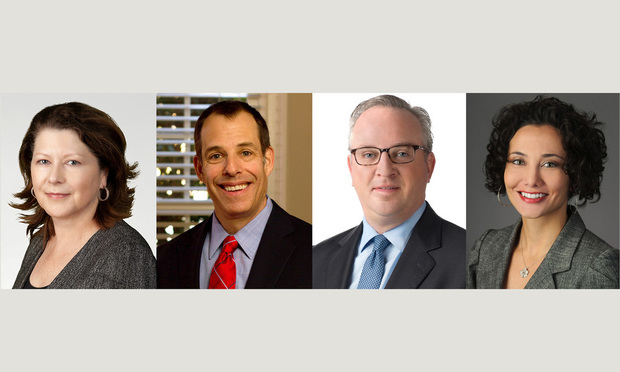Like the dating scene, the job interview process may start with a rendezvous for coffee at a local café. Although the meeting is held in an informal setting, don’t forget that the rules of interviewing apply. You still must prepare, dress appropriately, and sell yourself. Presenting your case in a public place presents some challenges, however.
Pick the place and time
Coffee houses are ubiquitous these days, and in some office locales there are several of the same franchise, so you must be absolutely clear as to which of the numerous mega-chain’s outlets is your designated meeting spot. Keep your cell phone with you and trade numbers beforehand in case you and your interviewer are having trouble meeting up. (Don’t forget to turn off the ringer once you both arrive.)  Â
If your job search is confidential, you’ll want to avoid the favorite coffee hangout for others from your office. It’s best to avoid the early morning rush, so aim for mid-morning or mid-afternoon if possible.
Grab a table
Coffee spots can be very noisy, especially with the cappuccino machine going, piped-in music, and baristas calling out customers’ names as drinks are ready. Get there early enough to nab a table as far from the counter as possible and away from major traffic patterns. Try to avoid noisy patrons, young children, and dogs. Go for the quietist and most private location you can find. Choose a table where you can sit directly opposite your interviewer rather than a couch where it is more difficult to make eye contact.
Order your drink
Keep it simple. Don’t order a half-caf double mocha soy-latte etc, etc, even though that’s your “usualâ€. You don’t want the interviewer to think that you are high maintenance. Order a small, plain coffee or tea (decaf is OK). Skip anything with a foamy top because a milk mustache is not the way to favorably impress a prospective employer. Another benefit is that plain coffee or tea don’t require prep time and can be immediately collected at the counter. You want to get started with your interview without delay or interruption. Remember that this meeting is about the conversation, not the coffee.
If you get to the café ahead of time, go ahead and get your drink, and wait at your carefully selected table for your interviewer to arrive. He or she can grab a drink and join you. Otherwise, after greeting the interviewer with a smile and strong handshake, stay seated at your staked-out table while the interviewer gets your (simple and easy to order) drinks. In most cases, the interviewer is expecting to pay for the coffees, but have a few dollars in your pocket just in case. And, don’t forget to tip the barista; you don’t want to look cheap.
Be heard but not overheard
The setting may be casual, but the conversation should not be. Some small talk is appropriate to break the ice and establish rapport, but the purpose of the meeting is strictly business.
Carrying on any conversation over the din of a busy coffee-house is difficult at best. It’s even more trying when the subject being discussed is private and key to your career success. Do your best to tune out the background noise and focus on what your interviewer is saying. Sometimes you may have to resort to reading lips, but don’t be afraid to ask the interviewer to repeat a question. You want to be absolutely sure you are answering appropriately. Repeat yourself as often as necessary to ensure that you have been completely heard and understood. Â
Speak loudly enough to be heard clearly by your interviewer, but not by those sitting nearby. Be especially careful not to mention details or names of people, clients, or matters if they should be kept confidential. It’s never a good idea to badmouth a current or previous employer (or anyone!) during an interview, but particularly not in a public setting. Â
If the interviewer presses you for details that you would prefer not to mention in a public venue, respond that you would be happy to provide the information, just not in a public place. You never know who is sitting at the next table. Suggest that you follow up with an email, telephone conversation, or further meeting in a more private setting. (Don’t offer email, however, if it is not something you are comfortable putting in writing.) Try to guard your privacy without appearing paranoid. This can send the message that you would be equally sensitive to protecting the privacy of the prospective employer’s firm and clients, should they hire you, as well.
Be flexible and use humor to diffuse any difficulty. Stay on track even if cut off or interrupted by loud noises. Don’t try to talk through distractions such as sirens or screaming children. Pause, smile, and continue when things calm down. If a noisy party happens to sit nearby once the interview gets started, and the noise continues to the point that you are having difficulty continuing the conversation, calmly and politely let the interviewer know. If the interviewer does not offer a solution, you can suggest that you move tables or continue the conversation by phone or an in-office meeting.
Review and wrap-up
Be sensitive to the interviewer’s time constraints, and look for signals that it’s time to wrap it up. If the conversation had been interrupted or strained because of noisy distractions, it’s especially important that you summarize the most important points. Take notes during the meeting or immediately thereafter. If there is a point you were trying to make, but are concerned you did not complete it due to the circumstances, mention it in your follow up thank you letter. And, yes, a thank you note is appropriate after your coffee “dateâ€.
Author:
Valerie Fontaine
SeltzerFontaine
Legal Search Consultants
2999 Overland Avenue, Suite 120
Los Angeles, CA 90064
Direct Dial: 310-842-6985
Main: 310-839-6000
[email protected]
www.seltzerfontaine.com










